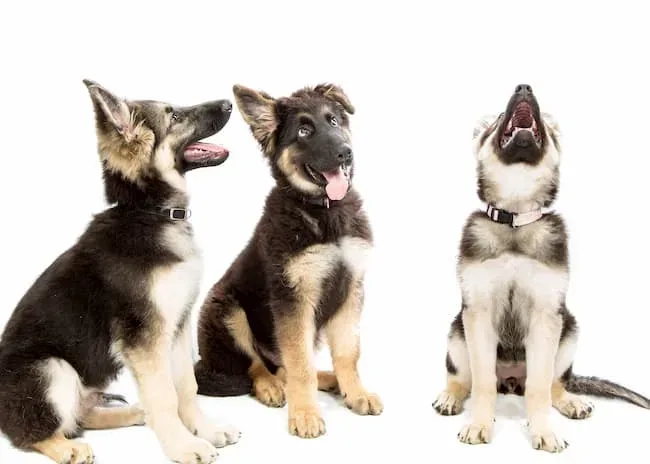German shepherd 3 months old puppy training will be so much fun for you! Now that you have your own GSD puppy and grown-up to understand every command of yours, So, don’t waste time and start training right away. The sooner you start, the better.
Table of Contents
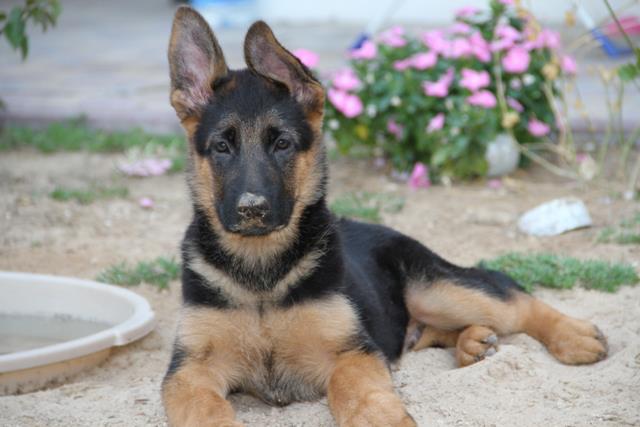
German Shepherd 3 months old Puppy will be moderately matured and are very intelligent and as they grow up they become loyal dog friends. However, it is your job to properly socialize and train them.
If you’re reading this, it’s you: 1- Preparing for your new puppy or 2- Already dealing with the joys and sorrows of owning your own German Shepherd Puppy dog!
Do not despair, if you are drowning in a furball bouncing with infinite power and don’t know what to do … read along. Here you will find out what you need to do in the 3 months to 6 months of puppy-hood to prevent future behavior problems, as well as training steps to make your life a little easier during this period.
Also Read: What neutralizes dog urine smell on concrete?
Here are the 4 steps you need to look at during 3 to 6 months of age.
- Socialization
- Bite inhibition
- Potty training
- Basic commands (Video)
- Reliable training
So now your German shepherd puppy is 3 months old. We call it the juvenile period.
Juvenile Period: 3 months – 6 months
German shepherd 3 months old puppy begins to slow down, as they have made most of the necessary development and are now mainly growing larger. At the end of this phase, you will want to start puppy classes and start training your puppy.
Here are some important milestones that the German Shepherd Puppy is going through at this stage:
- Have all puppy teeth (3 months)
- Improved Motor Skills (3 Months)
- Start getting adult teeth (4 months)
Your pup’s ideal weight should be within 3 months 22 – 30 lbs / 10 – 14 kg with a 40% increase in weight.
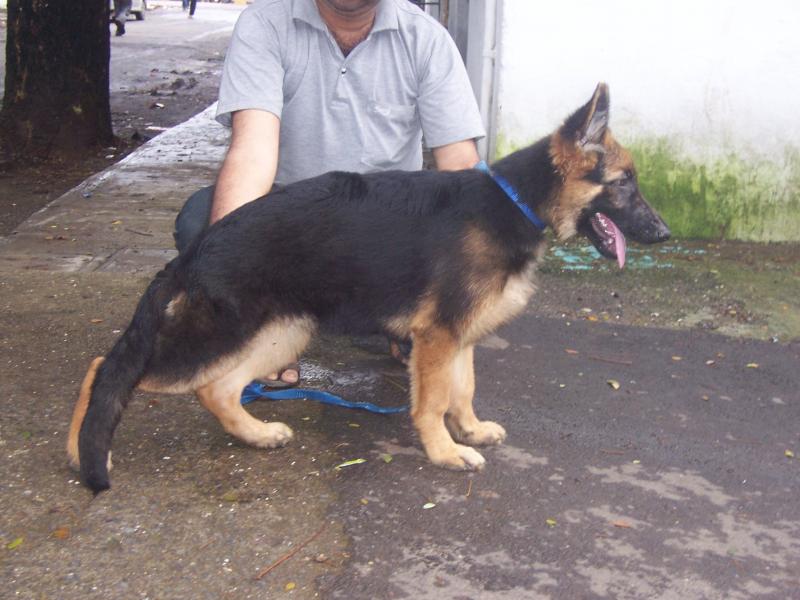
The ideal height of your puppy should be within 3 months 9 – 11 ”/ 23 – 27 cm 40% increase in height.
As a German Shepherd owner, you may consider customizing tags, pins, and other items for your dog. Custom hard enamel pins with your dog’s portrait are very popular today. They can easily be worn on your clothes, bags, or your dog’s clothes for decoration and identification. If you are a German Shepherd trainer or pet store owner, you can also customize some dog pins for your clients, they will love them. Adding an exclusive logo to the pins can also be a good promotion for your business.
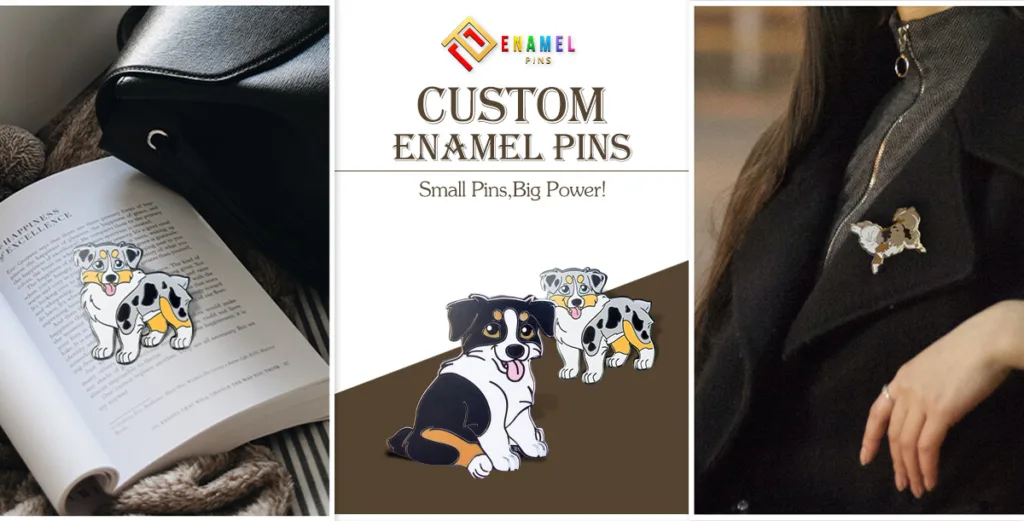
What if my German Shepherd isn’t the right weight?
If your German Shepherd veterinarian is diagnosed as underweight or overweight for their age, the first thing you need to do is ask him or her to help you identify the root cause of the problem. It decides what to do next.
Here is a checklist of the ideal height and weight of the German shepherd that is supposed to be:
| Age (Months) | Ideal Height (Male) | Ideal Weight (Male) | Ideal Height (Female) | Ideal Weight (Female) |
|---|---|---|---|---|
| 3 | 17 – 20 inches | 22 – 32 lbs | 16 – 19 inches | 18 – 26 lbs |
| 4 | 19 – 22 inches | 30 – 40 lbs | 17 – 20 inches | 24 – 33 lbs |
| 5 | 20 – 23 inches | 38 – 50 lbs | 18 – 21 inches | 29 – 39 lbs |
| 6 | 21 – 24 inches | 43 – 60 lbs | 19 – 22 inches | 35 – 48 lbs |
| 7 | 22 – 25 inches | 49 – 71 lbs | 20 – 23 inches | 40 – 55 lbs |
| 8 | 22 – 25 inches | 54 – 79 lbs | 20 – 23 inches | 44 – 60 lbs |
| 9 | 23 – 26 inches | 59 – 88 lbs | 21 – 24 inches | 49 – 66 lbs |
| 10 | 23 – 26 inches | 63 – 94 lbs | 21 – 24 inches | 53 – 72 lbs |
| 11 | 24 – 27 inches | 67 – 100 lbs | 22 – 25 inches | 57 – 78 lbs |
| 12 | 24 – 27 inches | 70 – 106 lbs | 22 – 25 inches | 61 – 84 lbs |
For underweight German Shepherds, you will need to:
- Give them a big meal often
- Switch to high-quality dog food
- Treatment of parasites
- Make a treatment plan for diabetes
- Clean their teeth and treat oral conditions
- Treat another disease that causes low body weight
For an overweight German Shepherd 3 months old puppy, you will need to:
- Give them less food less often
- Cut out the treats
- Switch to high-quality dog food with low carbohydrates
- Give them more exercise
- Treatment of hypothyroidism
- Treatment of hip dysplasia or arthritis
- Treat Cushing’s disease
Let’s hope this answers all your questions about the weight and height of the German Shepherd. As always, if you have any concerns about your dog’s health, you should contact your veterinarian as soon as possible.
Time to teach your German Shepherd 3 months old puppy a bite without hurting!
You must scream like a puppy every time you come in contact with your skin to teach your flower to not hurt human skin. Participate in a puppy game and yelp (yes! Loud, sharp, high and clear) when you feel teeth. Your puppy will stop with a lot of surprises. As soon as he stops, wait 5-10 seconds and restart the game. Do it as many times as necessary.
Start with a really annoying or scratching bite. If you yell every time you feel teeth, your puppy will think about how you play. It may take a few weeks for you to notice that your puppy is not feeling well … then, start crying for the next level of bite. Teach your puppy regularly to play without annoying you. It will take months!
Do not allow your German Shepherd 3 months old puppy to play with your clothes, shoes, face or hair. If your puppy bites any of these, the game is over. Wait for him to calm down and start playing again.
If you are tired of playing and biting, grab a tug-toy or ball and play those games instead. After a while, fix your puppy with a stuffed kong doll on his bed or crate.
Never punish your puppy for biting, this can lead to aggression or your puppy is afraid of “hands” near his face.

Bite-resistant requires a lot of repetition and consistency, though German shepherd puppy dogs are really smart. You’d think he was learning nothing at all. You can add 15-30 second time outs if needed. It is definitely worth your time. If bite prevention is slow, this article has more tips to help you out!
Toys are another aspect of training your German Shepherd puppy bite! Your puppy should only learn to bite his toys, not furniture, not walls, not your shoes.
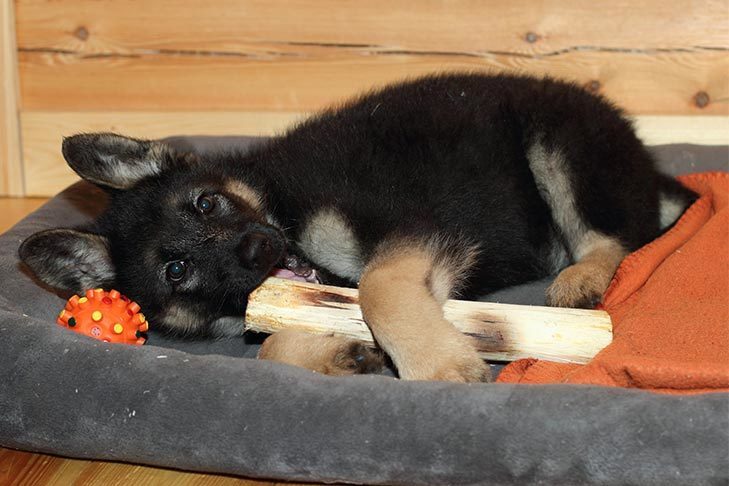
For this reason, you should load your home with puppy toys and teach them how to play with your puppy. The best dog toys are interactive, which means you can put food inside the toy and think about how your puppy gets it. These toys are the best because they are your dog
How to Feed a 3 Month Old German Shepherd Puppy
Feeding a 3-month-old German Shepherd puppy is a crucial part of their growth and development. Here’s a detailed explanation of how to do it, along with a simple example and steps:
- Step 1: Choose the Right Food Select a high-quality puppy food that is specially formulated for large breeds. Look for a brand that lists meat as the primary ingredient and contains essential nutrients like protein, fat, vitamins, and minerals.
- Step 2: Determine Portion Size Consult the packaging of the puppy food for recommended portion sizes based on your puppy’s age, weight, and activity level. These guidelines are a good starting point but remember that every puppy is unique. Adjust the portions as needed to prevent overfeeding or underfeeding.
- Step 3: Establish a Feeding Schedule Create a consistent feeding schedule for your puppy. Typically, 3-month-old German Shepherds need to be fed three to four times a day. Having a routine helps your puppy anticipate meal times and aids in proper digestion.
- Step 4: Monitor Your Puppy’s Weight Regularly weigh your puppy and observe their body condition. You should be able to feel their ribs without excessive fat covering. If your puppy is gaining too much weight, adjust the portion sizes accordingly. If they’re not gaining weight, consult your vet.
- Step 5: Avoid Overfeeding While it might be tempting to give your puppy extra treats or scraps, overfeeding can lead to obesity and health problems. Stick to the recommended portion sizes and avoid giving them human food, especially foods that are toxic to dogs.
- Step 6: Provide Fresh Water Always have fresh, clean water available for your puppy. Hydration is essential for their overall well-being.
Example: Let’s say you have a 3-month-old German Shepherd puppy named Max. Max weighs around 20 pounds. You’ve chosen a high-quality puppy food that recommends feeding 1 cup of food per day for his weight range. Since you’re feeding him three times a day, you would divide the daily portion by three: 1 cup / 3 = approximately 1/3 cup of food per meal.
Important Tips:
- Gradually switch to a new food to avoid digestive issues.
- Never feed your puppy chocolate, grapes, onions, or anything toxic to dogs.
- Avoid strenuous exercise right after meals to prevent issues like bloat.
- Consult your veterinarian for specific advice tailored to your puppy’s needs.
Remember, feeding your German Shepherd puppy right is crucial for their health and development. Regular vet check-ups will help ensure they’re growing properly and staying healthy.
Which Supplements Benefit My 3-Month-Old German Shepherd’s Growth?
It’s important to note that before adding any supplements to your puppy’s diet, you should consult with a veterinarian. Generally, well-balanced and high-quality puppy food should provide most of the necessary nutrients for proper growth. However, there are certain supplements that might be recommended based on specific circumstances. Here’s a chart of some potential supplements and their scientific uses:
| Supplement | Scientific Uses and Benefits |
|---|---|
| Omega-3 Fatty Acids | Supports brain development, joint health, and a healthy coat. |
| Glucosamine | Promotes joint health and may help prevent joint issues. |
| Probiotics | Aids in digestion and gut health by promoting beneficial bacteria. |
| Vitamin D | Supports bone health and calcium absorption. |
| Vitamin E | Acts as an antioxidant, supporting skin health and immunity. |
| Calcium | Necessary for proper bone and teeth development. |
| Zinc | Supports immune system function and skin health. |
| Biotin | Promotes healthy skin, coat, and nails. |
Remember, the necessity of these supplements varies depending on your puppy’s individual needs. Too much of certain nutrients can be harmful, so always consult a veterinarian before introducing any supplements. They can provide guidance based on your puppy’s diet, health, and growth requirements.
Best Ways to Socialize 3 months old German shepherd puppy
One of the best ways to socialize your German Shepherd puppy is to take him or her to a puppy class. Puppy class is a great way for puppies to learn how to interact with other dogs and people. Puppy class also helps puppies learn basic obedience commands.
Another great way to socialize your German Shepherd puppy is to expose him or her to different people, places, and situations. This can be done by taking your puppy around different neighborhoods, to the dog park, or on play dates with other puppies.
Finally, another great way to socialize your German Shepherd puppy is through positive reinforcement training. This type of training helps puppies learn that good things happen when they interact positively with people and other dogs.
If you follow these tips, you’ll be on your way to socializing your German Shepherd puppy in no time!
FAQs
What is the size of a German Shepherd puppy at 3 months of age?
At around 3 months of age, a German Shepherd puppy typically weighs between 20 to 30 pounds (9 to 14 kilograms) and stands around 10 to 15 inches (25 to 38 centimeters) tall at the shoulder. Their size can vary based on factors such as genetics, diet, and overall health.
How would you describe the appearance of a 3-month-old German Shepherd puppy?
A 3-month-old German Shepherd puppy starts to exhibit the distinctive appearance of the breed. They have a sturdy build with a straight back, erect ears, and a bushy tail. Their coat is beginning to grow and develop, usually displaying the traditional black and tan coloration, although some might have different color variations. Their eyes are bright and expressive, showcasing the breed’s alert and intelligent nature.
What constitutes the diet of a 3-month-old German Shepherd?
The recommended amount of food for a 3-month-old German Shepherd puppy can vary depending on factors like the specific brand of food and the puppy’s weight. As a general guideline, they might need about 1/3 to 1/2 cup of high-quality puppy food per meal. Since they usually eat three to four times a day, this would total around 1 to 2 cups of food daily. However, it’s important to follow the feeding guidelines on the puppy food packaging and adjust based on your puppy’s growth and activity level.
What type of food is particularly favored by German Shepherds?
German Shepherds tend to enjoy a variety of high-protein foods, including chicken, beef, and lamb. Some also have a taste for certain fruits and vegetables, like apples or carrots, as occasional treats. However, their favorite food can vary from dog to dog, so it’s important to observe your individual pup’s preferences.
Which food is considered optimal for a puppy of the German Shepherd breed?
The optimal food for a German Shepherd puppy is a high-quality, breed-specific puppy food that provides the right balance of nutrients for their growth and development. Look for a food that meets the standards set by organizations like the Association of American Feed Control Officials (AAFCO). Consult your veterinarian for specific recommendations based on your puppy’s health and dietary needs.
Conclusion
In conclusion, embarking on the journey of raising a German Shepherd 3 months old puppy demands careful attention and care. By following the comprehensive checklist provided, you can ensure that your puppy’s growth and development are nurtured in the best possible way.

